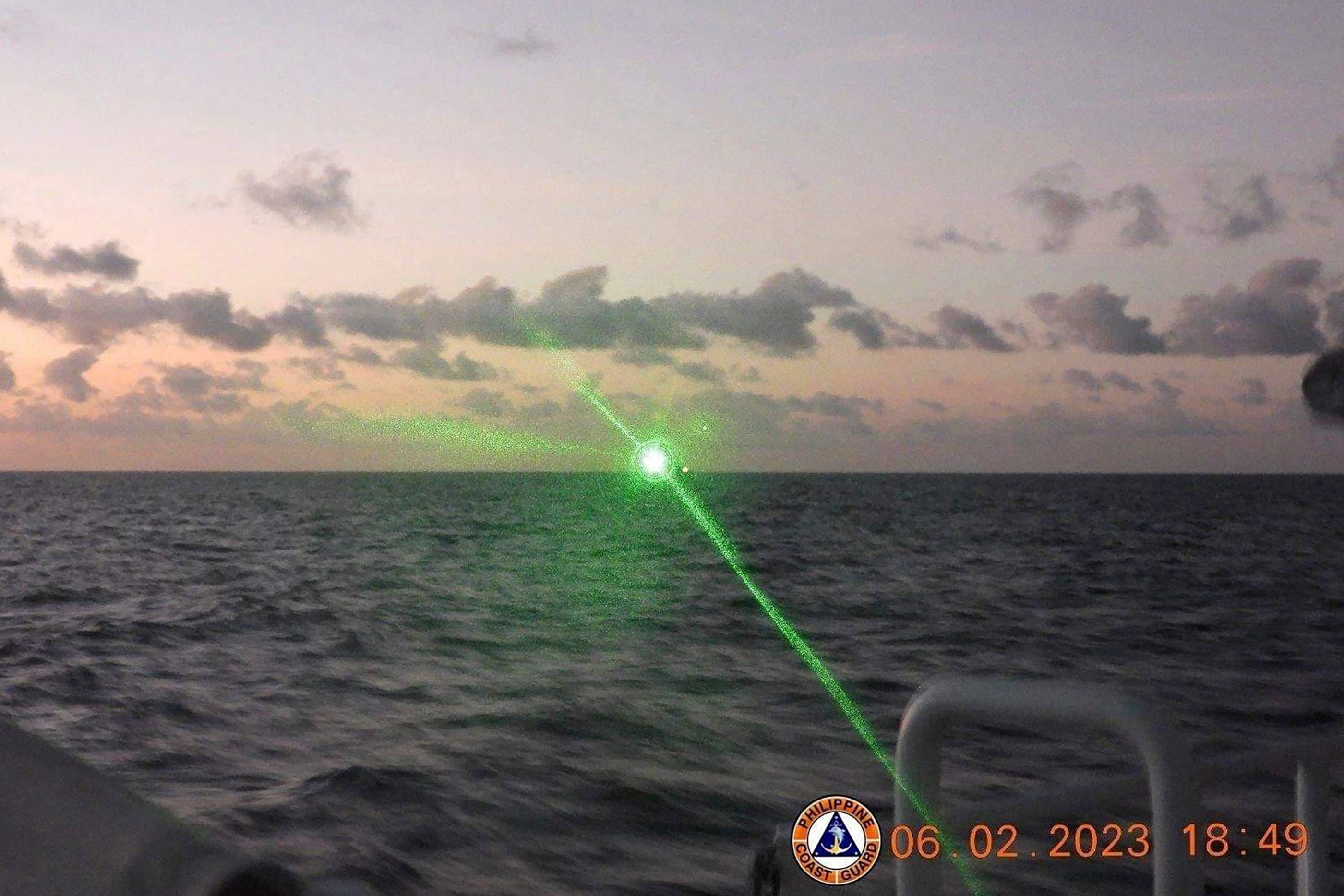Chinese patrol boat fires ‘blinding’ military-grade laser in clash with Philippines coast guard
Manila accuses China of using laser light to cause ‘temporary blindness’ of ship’s crew
A “military-grade laser light” allegedly hit a Philippines coast guard vessel and temporarily blinded some of its crew members in the disputed South China Sea.
Manila accused a Chinese coast guard ship of carrying out the act that took place on 6 February, officials said on Monday.
The Chinese ship allegedly maneuvered “dangerously” close, about 137 metres, to block the Philippine coast guard’s BRP Malapascua patrol vessel from approaching the Philippine-occupied Second Thomas shoal, the coast guard said in a statement.
Manila has called the act a “blatant” violation of Philippine sovereign rights.
The incident has become the latest flare-up in a series of maritime encounters between the two nations in the South China Sea, the entirity of which is claimed by Beijing.
Manila had filed nearly 200 diplomatic protests against China’s aggressive actions in the disputed waters in 2022 alone.
The laser incident comes just days after the US and the Philippines agreed to resume joint patrols in the sea and allowed Washington access to four more military bases closer to the self-governed island of Taiwan.
The Philippine patrol boat was supporting a rotation and supply mission for troops living in a derelict navy ship grounded on the shoal.
China had previously tried to block Philippine ships in the waters before but this was the first time it used laser light and caused physical suffering, Philippine coast guard spokesperson Commodore Armand Balilo told the Associated Press.
“The Chinese ship illuminated the green laser light twice toward the BRP Malapascua, causing temporary blindness to her crew at the bridge,” the Philippine coast guard said.

“The deliberate blocking of the Philippine government ships to deliver food and supplies to our military personnel on board the BRP Sierra Madre is a blatant disregard for, and a clear violation of, Philippine sovereign rights in this part of the West Philippine Sea,” the Philippine coast guard said, using the name Manila has adopted for the stretch of water close to its coast.
It was unclear if the supply mission was successful following the laser incident.
The Philippines said it reported the incident to an inter-agency body monitoring the South China Sea and the department of foreign affairs in Manila.
In August last year, the Chinese coast guard and militia vessels allegedly blocked the Philippines-garrisoned shoal to stop government ships from reaching troops.
One of two Chinese coast guard ships joined by two militia vessels removed the cover of its 70mm armament during the blockade, the coast guard said. “The Philippine coast guard will continue to exercise due diligence in protecting the country’s territorial integrity against foreign aggression,” coast guard admiral Artemio Abu said.
China’s president Xi Jinping and his Filipino counterpart Ferdinand Marcos Jr had agreed in January this year to set up direct communication between their foreign ministries to avoid “miscommunication” in the area.
Aside from China and the Philippines, Vietnam, Malaysia, Taiwan and Brunei also have overlapping claims in the resource-rich waters of the South China Sea.
Join our commenting forum
Join thought-provoking conversations, follow other Independent readers and see their replies
Comments
Bookmark popover
Removed from bookmarks